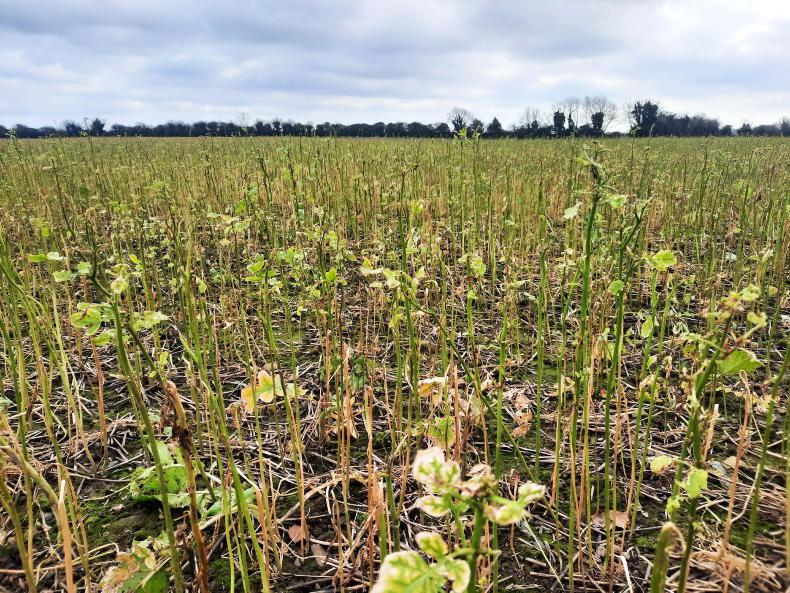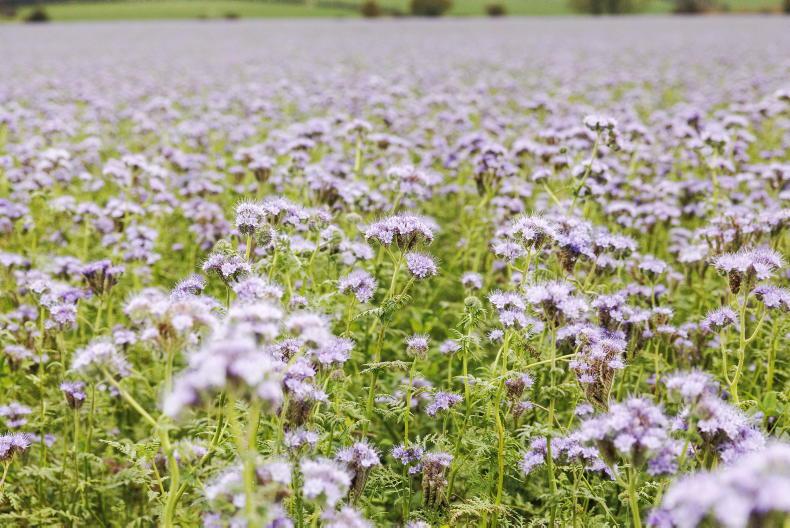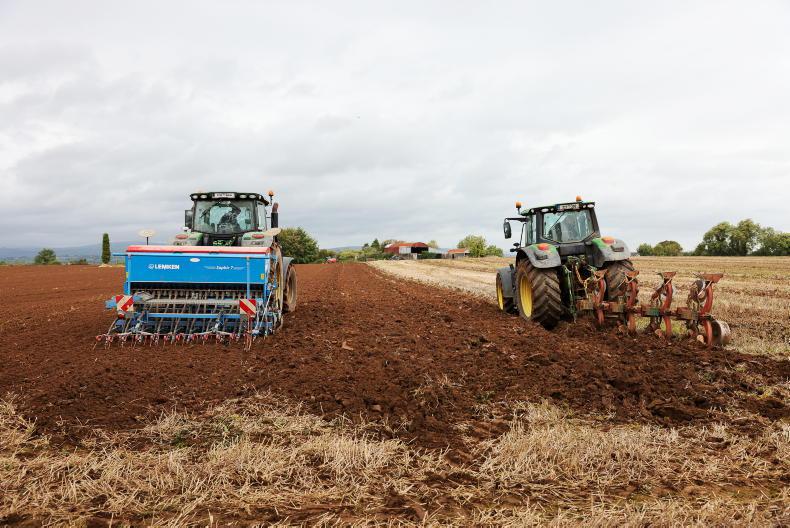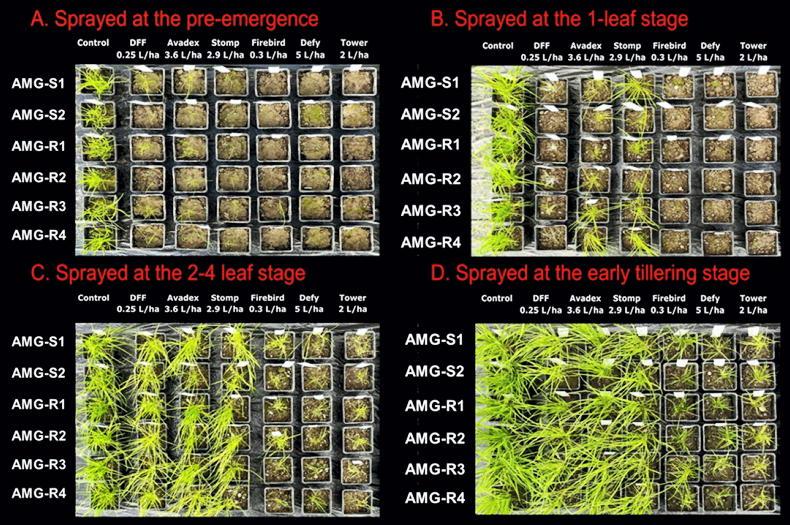The European Commission has approved the licence to renew glyphosate for 10 years, attaching several new conditions to the terms of its renewal.
The Commission approval comes after member states failed to reach a qualified majority to renew or reject the approval of the herbicide during a vote at the appeal committee on Thursday morning.
Glyphosate is the active ingredient in Roundup.
In line with EU legislation and in the absence of the required majority in either direction, the Commission was obliged to adopt a decision before 15 December 2023 when the current approval period expires.
Conditions
“The Commission, based on comprehensive safety assessments carried out by the European Food Safety Authority (EFSA) and the European Chemicals Agency (ECHA), together with EU member states, will now proceed with the renewal of the approval of glyphosate for a period of 10 years, subject to certain new conditions and restrictions,” it said on Thursday.
The first condition is the “prohibition for use as a desiccant (with the intention to control the time point of harvest or to optimise the threshing)”, the Commission said.
This means that farmers can’t spray their crops pre-harvest to encourage crops to ripen.
The other conditions outlined by the Commission include:
The setting of maximum limits for five impurities in glyphosate (ie, in the material manufactured). These limits are set to ensure that humans and the environment are fully protected.The requirement for member states to pay particular attention to specific aspects when carrying out risk assessments (eg, the protection of small herbivorous mammals, such as voles, and non-target plants, such as wildflowers) and to set risk mitigation measures to ensure that non-target organisms and the environment are protected.The setting of maximum application rates that shall not be exceeded unless the outcome of the risk assessment undertaken for the specific uses for which authorisation is applied for demonstrates that a higher rate does not lead to any unacceptable effects on small herbivorous mammals.An obligation for the applicant to submit information on the possible indirect impacts on biodiversity within three years from the availability of an appropriate guidance document. The Commission will request [the] EFSA to develop the necessary guidance.The Commission added that based on the assessment of all available information, there is currently no evidence to classify glyphosate as being carcinogenic.
New evidence
“A massive assessment has been carried out as part of the renewal decision, making glyphosate probably the most widely studied active substance in the world.
“However, if new evidence emerges that would show that the approval criteria are not met, the Commission will take action immediately to amend or withdraw the approval if this is scientifically warranted,” it stated.
Member states
Following the approval of active substances at EU level, before any plant protection products (PPPs) containing them can be placed on the market or used, it must be individually evaluated and authorised in each member state.
Member states, such as Ireland, are responsible for national authorisation of PPPs containing glyphosate.
All national authorisations must now be reviewed and in the light of the conditions and restrictions set in the renewal of ,approval member states can restrict their use at national or regional level if they consider this necessary based on the outcome of risk assessments, in particular when considering the need to protect biodiversity.
The European Commission has approved the licence to renew glyphosate for 10 years, attaching several new conditions to the terms of its renewal.
The Commission approval comes after member states failed to reach a qualified majority to renew or reject the approval of the herbicide during a vote at the appeal committee on Thursday morning.
Glyphosate is the active ingredient in Roundup.
In line with EU legislation and in the absence of the required majority in either direction, the Commission was obliged to adopt a decision before 15 December 2023 when the current approval period expires.
Conditions
“The Commission, based on comprehensive safety assessments carried out by the European Food Safety Authority (EFSA) and the European Chemicals Agency (ECHA), together with EU member states, will now proceed with the renewal of the approval of glyphosate for a period of 10 years, subject to certain new conditions and restrictions,” it said on Thursday.
The first condition is the “prohibition for use as a desiccant (with the intention to control the time point of harvest or to optimise the threshing)”, the Commission said.
This means that farmers can’t spray their crops pre-harvest to encourage crops to ripen.
The other conditions outlined by the Commission include:
The setting of maximum limits for five impurities in glyphosate (ie, in the material manufactured). These limits are set to ensure that humans and the environment are fully protected.The requirement for member states to pay particular attention to specific aspects when carrying out risk assessments (eg, the protection of small herbivorous mammals, such as voles, and non-target plants, such as wildflowers) and to set risk mitigation measures to ensure that non-target organisms and the environment are protected.The setting of maximum application rates that shall not be exceeded unless the outcome of the risk assessment undertaken for the specific uses for which authorisation is applied for demonstrates that a higher rate does not lead to any unacceptable effects on small herbivorous mammals.An obligation for the applicant to submit information on the possible indirect impacts on biodiversity within three years from the availability of an appropriate guidance document. The Commission will request [the] EFSA to develop the necessary guidance.The Commission added that based on the assessment of all available information, there is currently no evidence to classify glyphosate as being carcinogenic.
New evidence
“A massive assessment has been carried out as part of the renewal decision, making glyphosate probably the most widely studied active substance in the world.
“However, if new evidence emerges that would show that the approval criteria are not met, the Commission will take action immediately to amend or withdraw the approval if this is scientifically warranted,” it stated.
Member states
Following the approval of active substances at EU level, before any plant protection products (PPPs) containing them can be placed on the market or used, it must be individually evaluated and authorised in each member state.
Member states, such as Ireland, are responsible for national authorisation of PPPs containing glyphosate.
All national authorisations must now be reviewed and in the light of the conditions and restrictions set in the renewal of ,approval member states can restrict their use at national or regional level if they consider this necessary based on the outcome of risk assessments, in particular when considering the need to protect biodiversity.










SHARING OPTIONS